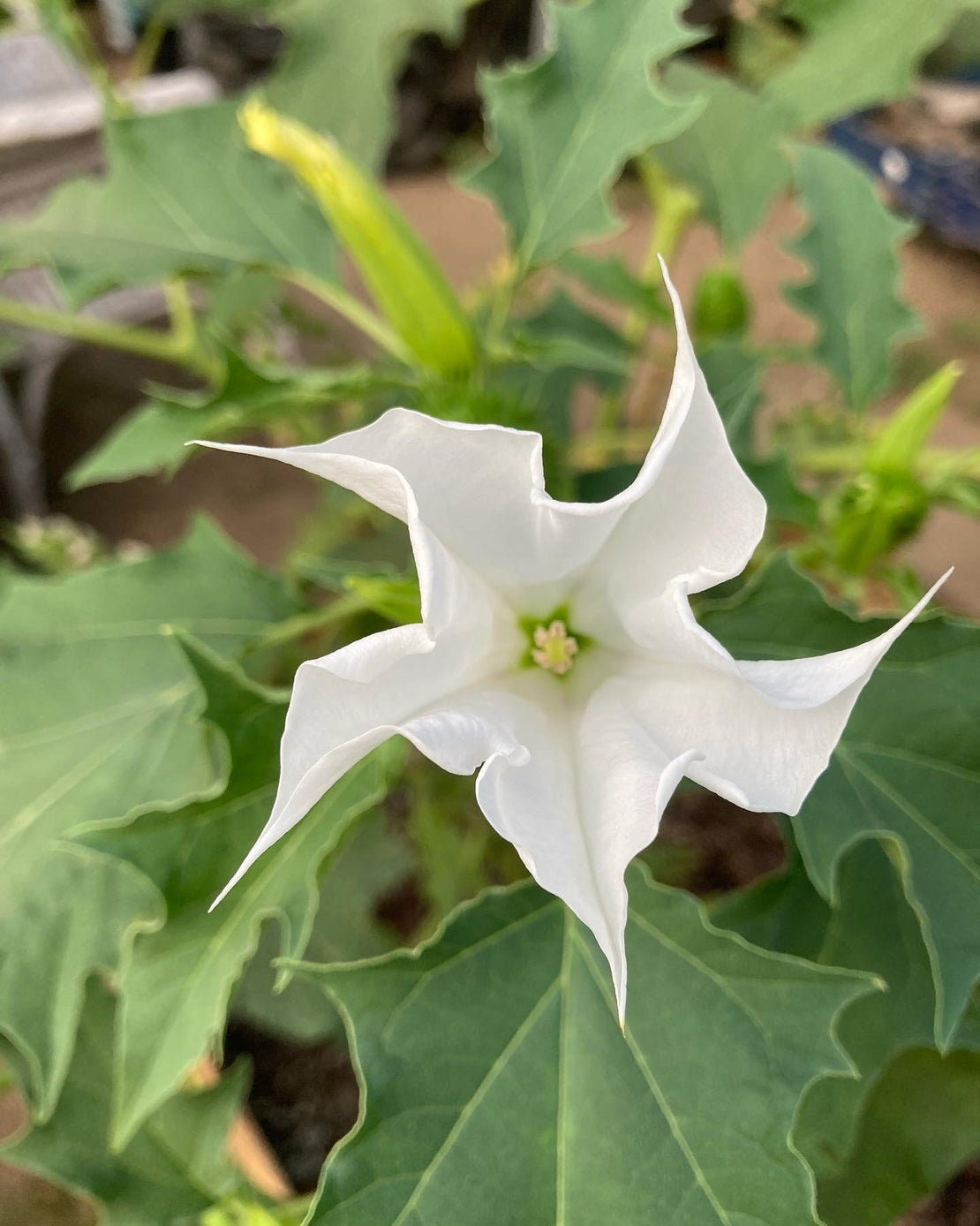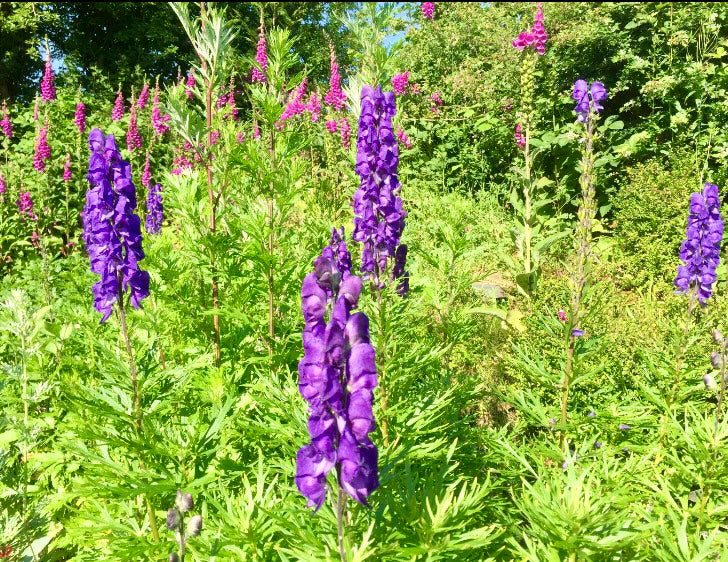Understanding and Respecting the Power of Plants
Many of the world’s most beautiful and useful plants contain natural compounds that are considered toxic. This includes not only lesser-known magical herbs like Mandrake or Henbane, but also common garden favourites such as Foxglove, Delphinium, and Lily-of-the-Valley. At Pretty Wild Plants, we believe that all plants deserve respect — and that education, not fear, is the key to growing and working with them safely.
Are Toxic Plants Dangerous?
Only if handled carelessly. Toxic plants are no more inherently dangerous than bleach under the sink or a sharp knife in the kitchen — both are useful when treated with understanding and caution. Many of the plants we offer have been used safely for centuries in gardens, rituals, and herbal traditions. The key is to know your plant, handle it mindfully, and follow good growing and harvesting practices.

Practical Tips for Safe Handling
- Wear gloves when handling roots, seeds, or milky sap (e.g., Mandrake, Henbane, Opium Poppy, Aconite).
- Wash hands after working with toxic plants, especially before eating or touching your face.
- Label your plants clearly, especially if children or pets are nearby.
- Don’t grow them near edibles like salad beds or herb spirals, to avoid accidental mixing.
- Avoid burning or ingesting any part of a toxic plant unless you are trained, informed, and absolutely sure of its preparation and purpose.
- Educate yourself on each plant's unique properties, history, and handling requirements.
- Keep dried parts (e.g., seeds, roots, flowers) stored safely and labelled, just like you would with essential oils or herbal tinctures.
Good Husbandry is Good Magic
Caring for toxic plants responsibly isn’t just about safety — it’s also about stewardship and connection. These plants have ancient stories, spiritual significance, and powerful medicines. When we grow them with awareness, we deepen our relationship with the natural world.
A Final Note
Always do your own research, trust your intuition, and take responsibility for how you work with plants. If you’re unsure about any species, feel free to contact me — I’m always happy to help or point you toward good resources.

